I recently had the privilege of spending time with some high level, Fortune 500 corporate prospects. We met at a conference which was designed to help potential suppliers meet and develop new relationships with Decision Makers.
The opportunity arose for me to sit with several of these executives and ask them what they like and don’t like from their interactions with potential suppliers. They gave me 7 tips to share with Business Owners and their salespeople.
Here are the top 3 tips they shared (I’ll post the other 4 tips in Part 2 of this column):
1. Understand the corporation (culture, needs) and the individual BEFORE you arrive at the networking event.
One corporate prospect went so far as to say if a potential supplier refers to her company as “pharmaceutical” versus “biotech” she knows the seller did not do his/her homework. She then draws conclusions as to how prepared this person will be for other interactions with her company. Do you think this potential supplier has a shot moving forward? No. What are the lessons here? Do your research ahead of time and come prepared. Have a clear understanding of why what you do really matters to the company and the individual. How can your products and services make this person’s life better? Remember, one word can cost you an opportunity!
2. Use succinct and customized messages.
While this seems a no-brainer, Business Owners and their sellers continually violate this rule. I was standing next to a Business Owner while she talked about her business to a senior Decision Maker from one of the largest companies at the conference. She had his full attention. He wanted to help her. She talked about her business in words he didn’t understand. He struggled to identify what she did. He said, “So you’re a company that does .” She said, “Not quite.” Then she explained again. He tried again to understand. He said, “So you’re a company that does .” She said that’s closer. She started to explain again. At that point I was watching his face. I saw him start to glaze over. Have you ever seen that in a networking situation? The prospect glazes over? He was working too hard to understand what she did.
When prospects receive new information they put it into categories. Either “I do this.” Or, “Joe down the hall does this.” Or, “We don’t need this at all.” Or, “I have NO idea what this person is talking about.” With a clear concise message, you can avoid the last category. Help your prospects to help you. Work on your message ahead of time. Test it out and get feedback. A few sellers told me they are purposely vague with their message so that prospects will engage and ask clarifying questions. Here’s a secret for the people who do this. The Decision Makers don’t like it! They don’t want to work so hard to help you.
3. Understand that not every manager is looking for a new supplier.
As the saying goes, timing is everything. Corporate prospects want Business Owners and Sellers to understand that they may not be in need of a new supplier at the exact time of the initial meeting. They said, “Stay in touch. You never know when new needs might arise or when a current supplier falls out of favor or when needs change.” If you stay in touch and are top of mind, you will be part of the decision set when there is a need. Too often when Business Owners and Sellers hear there isn’t an immediate need they stop following up. They don’t ask who else in the company has a need. They just disappear. That leads to missed opportunities.
I also asked the Decision Makers, “What is the best way for Business Owners and Sellers to continually have their attention over time?” They said, “Innovate.” They like the vendors who constantly think about their needs and develop new products and services that help them.







